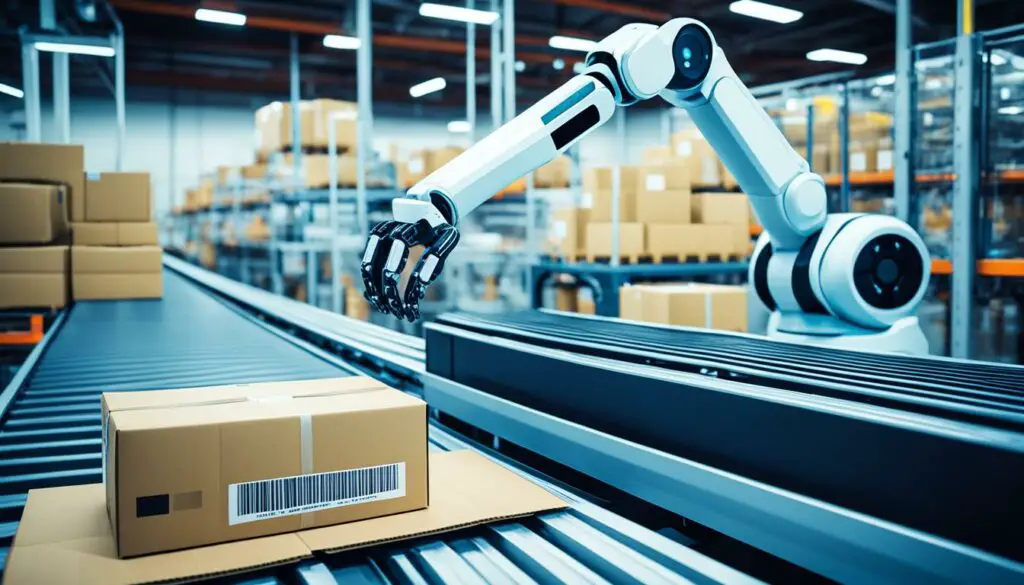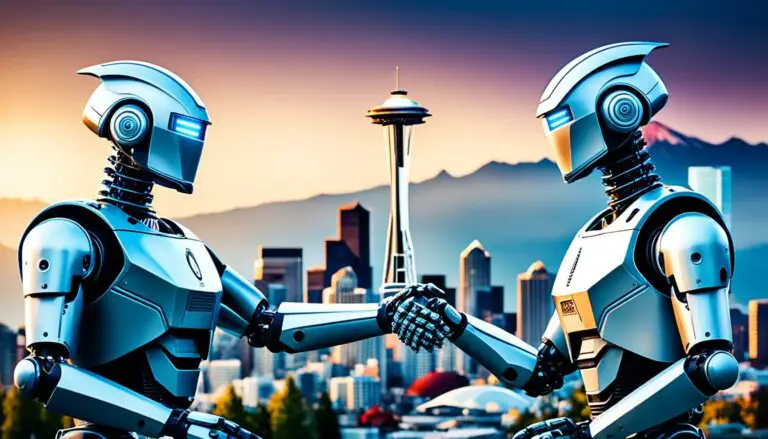Protect AI Acquires Laiyer, Creators of LLM Guard
Seattle startup, Protect AI, has recently acquired Laiyer AI, the makers of LLM Guard. This move is a big deal for AI security. Protect AI plans to use Laiyer AI’s know-how to make their security tools better. They also want to reach more customers. This deal is a game-changer for AI tech. It puts Protect AI as a top name in the field.
Key Takeaways:
- Protect AI, a Seattle-based startup, has acquired Laiyer AI, the creators of LLM Guard
- This acquisition marks an important milestone in the field of AI security and innovation
- Protect AI aims to enhance their AI-powered security solutions and expand their market presence with the expertise of Laiyer AI
- The acquisition solidifies Protect AI’s position as a key player in the industry
- The future of AI technology is set to be transformed by this groundbreaking acquisition
The Landscape of the MAD Ecosystem
The MAD ecosystem, which includes ML, AI, and Data, has grown a lot recently. Thanks to digitization and tech advances, we’ve seen quick progress in data analytics, machine learning, and AI. More companies and products are now part of this evolving landscape.
As of 2024, the MAD landscape showcases over 2,000 logos. This highlights the industry’s vast nature. The ecosystem is categorized into infrastructure, analytics, machine learning, AI, applications, and open-source infrastructure. These groups show the diverse areas and elements within the MAD world, revealing its wide scope.

Emerging Trends in the MAD Ecosystem
- The data analytics sector is booming. Companies leverage data for valuable insights and smarter decisions.
- Machine learning is changing industries by teaching computers to learn from data for better predictions.
- The AI ecosystem grows swiftly, with new tools for health, finance, and transport.
- Progress in AI fosters innovation, reshaping business methods for better efficiency and results.
- The rise in open-source infrastructure in the MAD landscape encourages sharing and teamwork among tech minds.
“The MAD ecosystem is vibrant and ever-changing, driven by ongoing progress and innovation. As firms adopt data, analytics, machine learning, and AI, the landscape evolves, unlocking new prospects and hurdles.” – Industry Expert
The Role of AI in Supply Chain Management
AI has become a vital part of managing supply chains. It’s shaping the industry, especially in 2024. A big trend is composite AI. This approach mixes different AI methods to tackle tough business challenges and boost supply chain performance.
Composite AI helps businesses use AI, machine learning, and analytics for smart decisions in no time. It makes things more efficient, accurate, and cost-effective across the supply chain.
AI-enabled vision systems are also becoming popular. They use smart algorithms to understand images and videos. This helps in making better choices. For instance, these systems check for flaws in products. This stops bad items from getting into the supply chain. They also improve how inventory is managed and moved, making things more efficient.
AI helps in many ways, like making workforces smarter and more connected. AI systems guide workers to be more effective, offering advice as they work. This makes teams work better together and saves money.
AI is changing how businesses buy things too. It uses data to find the best suppliers and deals. AI predicts problems before they happen, helping businesses save money and reduce risks.
AI also promotes greener supply chains. It uses data to lessen the environmental effects of supply chains. AI helps in reducing pollution, cutting waste, and choosing more ethical sources.
When adding AI into supply chains, businesses need to think carefully. They must decide if building their own AI or using existing solutions is better. It’s also important to consider ethical issues like privacy and openness.
The Benefits of AI in Supply Chain Management
AI brings lots of advantages to supply chains:
- Improved decision-making and real-time insights
- Enhanced efficiency and accuracy
- Cost savings and optimization
- Reduced supply chain risks and disruptions
- Increased productivity and scalability
- Enhanced sustainability and environmental impact
Using AI can transform supply chains. It brings growth and success by embracing new technologies.
| AI Trends in Supply Chain Management | Description |
|---|---|
| Composite AI | Combines multiple AI techniques to solve complex business problems and improve supply chain performance. |
| AI-enabled vision systems | Utilizes advanced computer vision algorithms to analyze and interpret visual data for improved decision-making. |
| Augmented and connected workforces | Using AI technologies to enhance collaboration and streamline communication between workers and machines. |
| Machine-centric procurement | AI algorithms analyze data to identify the best suppliers, negotiate optimal prices, and predict potential disruptions. |
| End-to-end sustainable supply chains | AI-powered analytics to measure and optimize the environmental impact of supply chain operations. |

Conclusion
The deal where Protect AI bought Laiyer AI shows how important AI is for the future of tech. This step is vital in AI safety, showing Protect AI’s focus on new and better ideas. As AI grows, we’ll see more changes and deals that will shape tech’s future.
AI’s future is full of chances to change industries and spark new ideas. The MAD ecosystem is growing, bringing in new companies and products. This adds to competition and growth. AI is getting more important in managing supply chains, making them more efficient and smart.
Looking forward, AI will keep changing how tech companies work and how industries look. It will push innovation, helping companies to be more efficient, make customers happier, and stay ahead. The future looks promising for AI, and companies must take advantage of it to keep up with fast technological changes.








